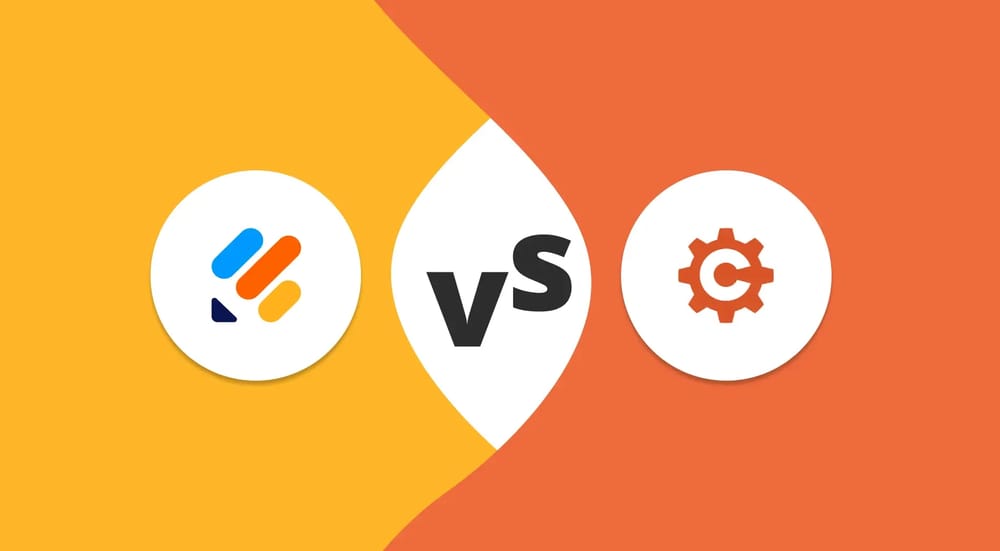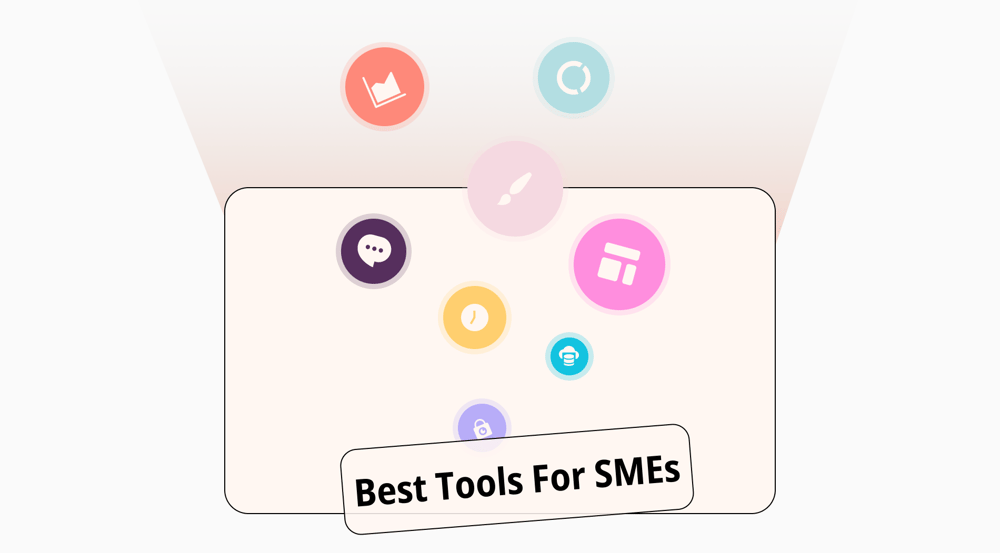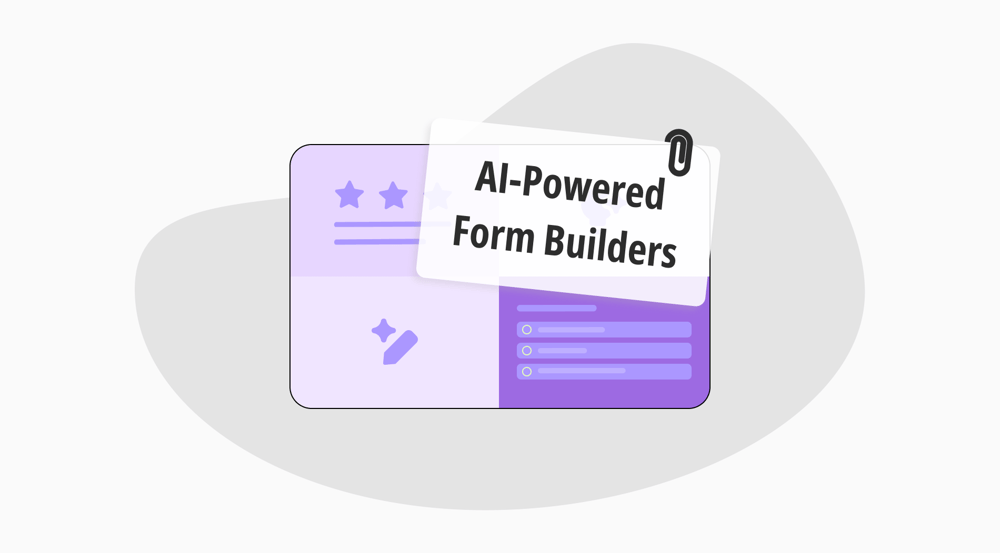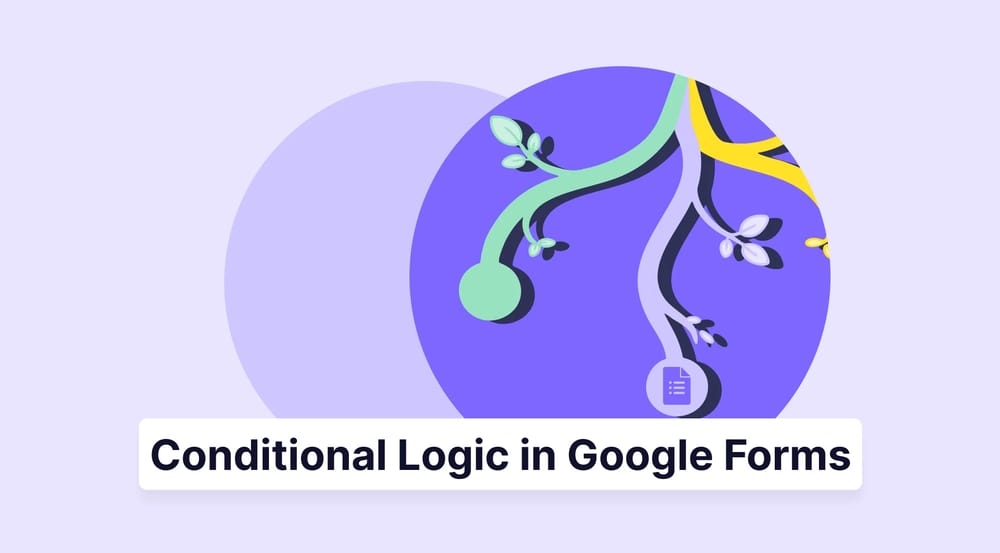In der heutigen schnelllebigen digitalen Landschaft ist es für Unternehmen und Einzelpersonen unerlässlich, das richtige Formularerstellungstool zu finden. Jotform und Cognito Forms sind zwei beliebte Optionen, die unterschiedliche Funktionen, Integrationen und Anpassungsmöglichkeiten bieten. Aber welche Plattform ist besser für Ihre spezifischen Bedürfnisse geeignet?
Ob Sie fortgeschrittene Anpassungen, umfangreiche Feldtypen oder nahtlose Teamzusammenarbeit benötigen, dieser Artikel wird die wichtigsten Unterschiede zwischen Jotform und Cognito Forms aufzeigen, um Ihnen bei der Auswahl der besten Option zu helfen. In diesem Artikel vergleichen wir Cognito Forms vs Jotform anhand von sieben wesentlichen Punkten, um Ihnen bei der Entscheidung zu helfen. Außerdem werden wir eine alternative Lösung vorstellen, die Unternehmen jeder Größe anspricht.
Jotform vs. Cognito Forms auf den ersten Blick
Auf den ersten Blick bieten sowohl Jotform als auch Cognito Forms einfach zu bedienende Drag-and-Drop-Formularersteller. Jotform glänzt mit seiner großen Auswahl an fortgeschrittenen Formularfeldern und Vorlagen, während Cognito Forms auf Einfachheit setzt und eine schnelle Formularerstellung mit intuitiven Werkzeugen ermöglicht. Jotforms umfangreiche Anpassungsmöglichkeiten und Integrationen machen es ideal für Unternehmen, während Cognito Forms eine gute Option für Benutzer ist, die eine einfache und effiziente Formularerstellungserfahrung suchen.
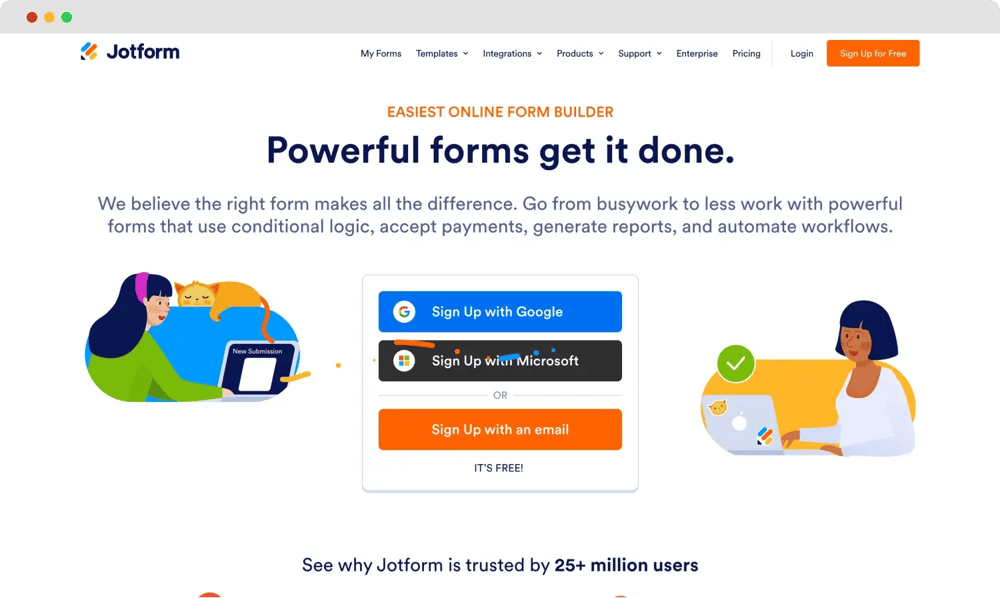
Die Homepage von Jotform
Jotform ist beliebt für seinen einfach zu bedienenden Drag-and-Drop-Builder, der es Benutzern ermöglicht, Formulare durch Hinzufügen von Dingen wie Text, Bildern, Widgets und Zahlungsoptionen zu erstellen. Es bietet eine große Auswahl an Formularvorlagen und viele Möglichkeiten zur Anpassung, was es zu einer soliden Option für Unternehmen macht. Jotform glänzt auch im E-Commerce, mit reibungslosen Integrationen zur Zahlungserfassung, was es ideal für Unternehmen macht, die ihre Prozesse vereinfachen möchten, unabhängig von ihrer Größe oder Branche.
🎯Wenn Sie an Alternativen zu Jotform interessiert sind, lesen Sie diesen Artikel: Jotform-Alternativen
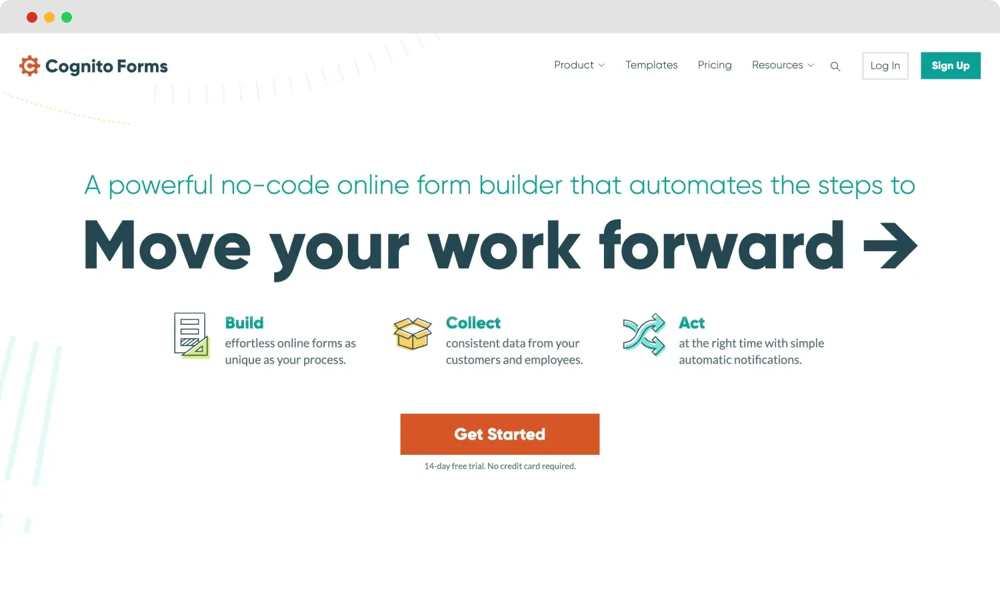
Die Homepage von Cognito Forms
Cognito Forms ist bekannt für seine benutzerfreundliche Oberfläche und seine leistungsstarken Formularerstellungsfunktionen. Es ermöglicht Benutzern, einfach detaillierte Formulare mit Funktionen wie bedingter Logik, Datei-Uploads und Berechnungen zu erstellen. Eine seiner herausragenden Funktionen ist die Möglichkeit, mehrseitige Formulare zu erstellen, wodurch es sich hervorragend für die Erfassung komplexer Daten eignet. Es integriert sich gut mit beliebten Tools wie Microsoft Excel und Zapier, was es zu einer guten Wahl für Unternehmen macht, die flexible und anpassbare Lösungen für die Datenerfassung benötigen.
🎯Wenn Sie an Alternativen zu Cognito Forms interessiert sind, lesen Sie diesen Artikel: Cognito Forms-Alternativen
Jotform vs. Cognito Forms: 7 wesentliche Punkte
Die Auswahl des besten Online-Formularerstellers erfordert die Berücksichtigung wichtiger Faktoren wie Preisgestaltung, Funktionen, Integrationen und Unterstützung für die Teamzusammenarbeit. Um Ihnen bei der Entscheidung zu helfen, haben wir Jotform und Cognito Forms in 7 wichtigen Bereichen verglichen und geben Ihnen so ein klares Verständnis dafür, was jede Plattform zu bieten hat.
1. Preisgestaltung
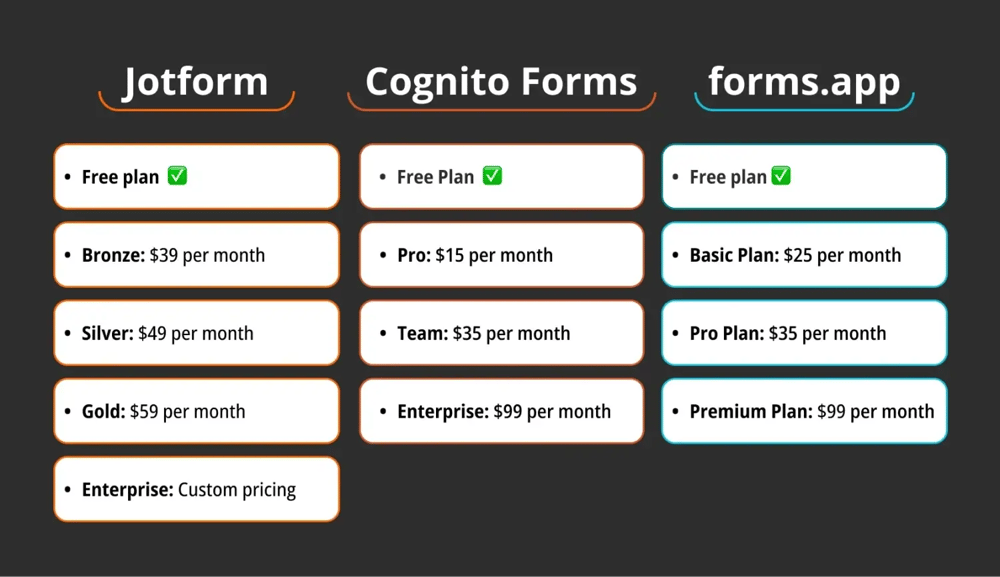
Vergleich der Preisgestaltung zwischen Jotform, Cognito Forms und forms.app
Die Preispläne von Jotform sind vielfältig und beginnen mit einem kostenlosen Plan für die grundlegende Formularerstellung. Die kostenpflichtigen Pläne beginnen bei 24 $ pro Monat für den Bronze-Plan. Der Silber-Plan kostet 39 $ pro Monat und eignet sich für wachsende Unternehmen, während der Gold-Plan bei 99 $ pro Monat erweiterte Funktionen für größere Teams bietet. Für maßgeschneiderte Lösungen bietet Jotform auch einen Enterprise-Plan mit individueller Preisgestaltung an. Hier eine Zusammenfassung der Jotform-Preispläne:
- Kostenloser Plan ✅
- Bronze: 39 $ pro Monat
- Silber: 49 $ pro Monat
- Gold: 59 $ pro Monat
- Unternehmen: Individuelle Preise
Cognito Forms Preise sind flexibel und beginnen mit einer kostenlosen Testoption für grundlegende Formularerstellung, die bis zu 500 Einträge pro Monat ermöglicht. Der Pro Plan kostet 15 $ und ist ideal für kleine Teams, die fortgeschrittene Funktionen benötigen. Der Team Plan kostet 35 $ pro Monat und beinhaltet höhere Eintragslimits und Unterstützung für Zusammenarbeit. Der Enterprise Plan für 99 $ pro Monat bietet größere Unternehmen die höchsten Limits und zusätzliche Sicherheitsfunktionen.
- Kostenloser Plan ✅
- Pro: 15 $ pro Monat
- Team: 35 $ pro Monat
- Enterprise: 99 $ pro Monat
forms.app, als Top-Alternative, bietet wettbewerbsfähige Preise mit umfassenden Funktionen. Der kostenlose Plan beinhaltet essentielle Werkzeuge wie Zugang zu allen Feldtypen, Vorlagen und Integrationen. Mit nur 25 $ pro Monat ist forms.app im Vergleich zu Jotform und Cognito Forms eine kostengünstige Option. Hier ist eine Übersicht über die Preise von forms.app:
- Kostenloser Plan ✅
- Basic Plan: 25 $ pro Monat
- Pro Plan: 35 $ pro Monat
- Premium Plan: 99 $ pro Monat
2. Formularfunktionen
Jotform bietet viele Anpassungsoptionen. Sie können ganz einfach Funktionen wie Widgets hinzufügen und bedingte Logik einrichten, um Fragen basierend auf Antworten anzuzeigen oder auszublenden. Es unterstützt auch Zahlungen über Plattformen wie PayPal und Stripe, was es ideal für Online-Shops macht. Mit vielen Vorlagen und einem einfachen Drag-and-Drop-Builder ist die Erstellung von Formularen schnell und unkompliziert, was es zu einer guten Wahl für Unternehmen jeder Größe macht.
Cognito Forms ist einfach zu bedienen und ideal für den schnellen Aufbau einfacher, funktionaler Formulare. Sie können hilfreiche Funktionen wie Berechnungen und bedingte Logik hinzufügen, die dazu beitragen, das Formularerlebnis anzupassen. Es unterstützt auch Zahlungsoptionen wie Square und PayPal. Mit einem sauberen Design und einer benutzerfreundlichen Oberfläche ist Cognito Forms perfekt für diejenigen, die effektive Formulare erstellen möchten, ohne zu viel Aufwand zu betreiben.
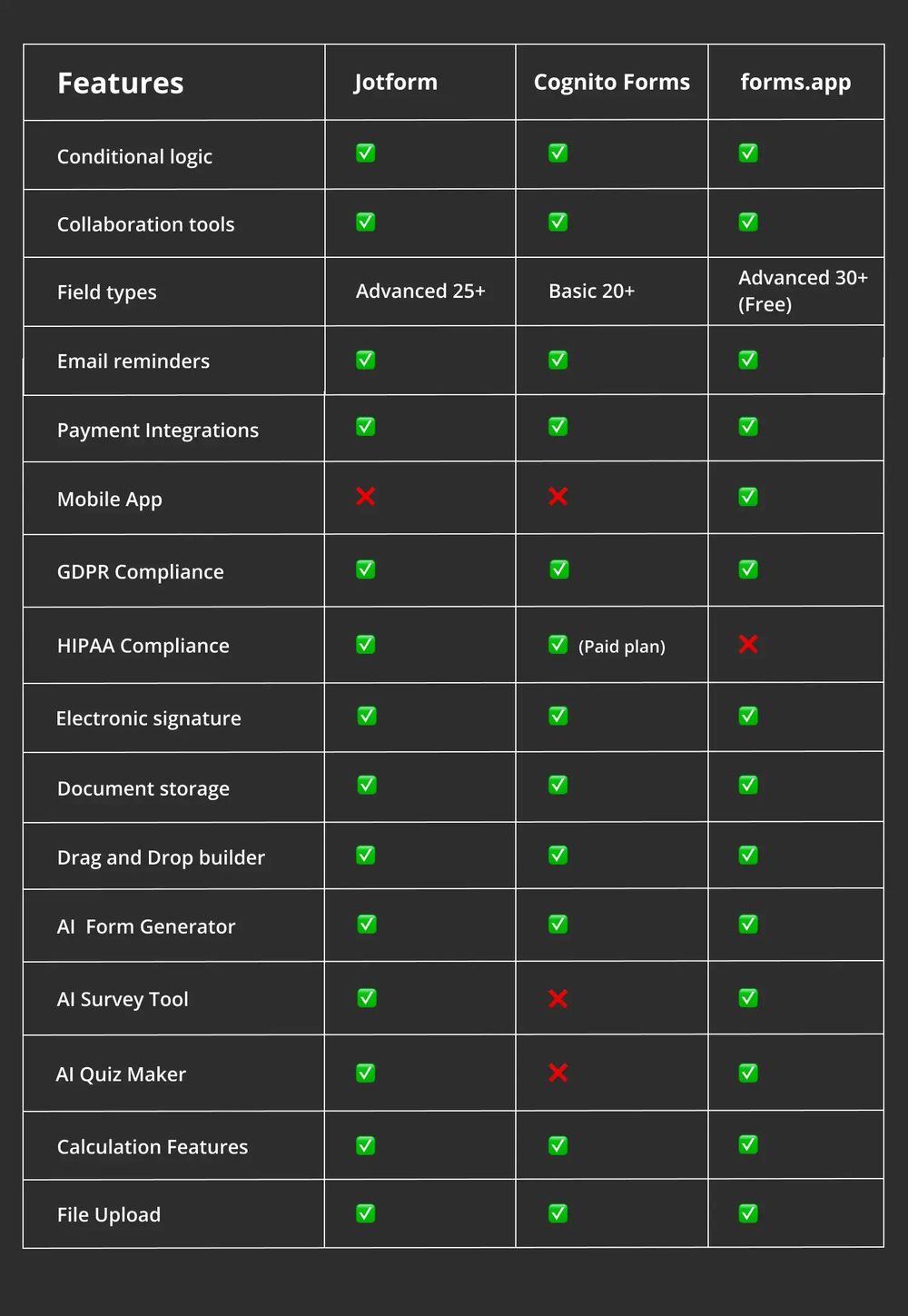
Vergleich der Funktionen zwischen Jotform, Cognito Forms und forms.app
3. Anpassungsoptionen
Jotform ermöglicht es Ihnen, Ihre Formulare einfach an Ihr Branding anzupassen. Sie können Logos, Bilder und Videos hinzufügen und aus verschiedenen Themen auswählen, um die Formulare wie Ihr Unternehmen aussehen zu lassen. Es ermöglicht Ihnen auch, benutzerdefinierte Dankeschön-Seiten zu erstellen und automatische E-Mail-Antworten zu senden, um die Kommunikation zu verbessern. Für fortgeschrittene Benutzer bietet Jotform benutzerdefinierte CSS-Optionen, um Formularen ein einzigartiges und professionelles Aussehen zu verleihen.
Cognito Forms ermöglicht es Ihnen, Ihre Formulare einfach mit vielen Funktionen anzupassen. Sie können Ihr Logo hinzufügen, Farben ändern und aus einer Vielzahl von Stilen wählen, um Ihrem Branding zu entsprechen. Es bietet auch Optionen für die Einrichtung von benutzerdefinierten Bestätigungsnachrichten und das Senden automatischer E-Mails. Für Benutzer, die mehr Kontrolle wünschen, unterstützt Cognito Forms benutzerdefiniertes CSS, um das Design Ihrer Formulare zu optimieren.
forms.app macht Ihre Formulare großartig. Sie können lustige animierte Hintergründe auswählen, Themen ändern, verschiedene Schriftarten auswählen und Farben auswählen, die Ihrem Stil entsprechen und Ihnen helfen, Daten zu sammeln. Es bietet auch erweiterte Optionen wie benutzerdefiniertes CSS, um Ihre Formulare noch besser aussehen zu lassen. Mit List and Step-Ansichten zur Organisation Ihrer Formulare und der Möglichkeit, Videos hinzuzufügen, hilft Ihnen forms.app, Benutzer einzubinden, Informationen zu sammeln und ein besseres Erlebnis für alle zu schaffen.
4. Feldtypen
Jotform bietet eine Vielzahl von Feldern und Fragetypen, um das Formulardesign und die Benutzererfahrung zu verbessern. Mit über 30 Optionen in Formularfeldern, einschließlich grundlegender Typen wie Text und E-Mail, sowie erweiterter Funktionen wie Datei-Upload und Sternbewertung, können Benutzer ansprechende Formulare erstellen. Es unterstützt auch Berechnungen und bedingte Logik und integriert sich mit verschiedenen Apps für individuellere Lösungen.
Cognito Forms hat viele verschiedene Felder und Fragetypen, um Ihre Formulare interessanter und benutzerfreundlicher zu gestalten. Mit über 25 Optionen können Sie grundlegende Felder wie Text und E-Mail, sowie spezielle Funktionen wie Datei-Upload und Kontrollkästchen verwenden. Es ermöglicht auch Berechnungen und einfache Logik, um verschiedene Fragen basierend auf Antworten anzuzeigen. Außerdem verbindet sich Cognito Forms mit anderen Apps, um Ihnen bei der Erstellung des perfekten Formulars für Ihre Bedürfnisse zu helfen.
Im Gegensatz dazu bietet forms.app mehr als 30 verschiedene und flexible Felder, wie Produktkorb, Zeichenfeld und Feldgruppen. Diese Optionen machen Ihre Formulare unterhaltsamer und interessanter und verbessern die Art und Weise, wie Sie Daten sammeln und verwalten. Selbst mit dem kostenlosen Plan, können Benutzer diese breite Palette an Feldern nutzen, was forms.app zu einer großartigen Wahl für jeden macht, der ansprechende und individuelle Formulare erstellen möchte.
5. Integrationen
Dieser Teil ist für alle Formularersteller sehr wichtig, da die Verknüpfung mit anderen Apps Ihnen hilft, Ihre Formulardaten und -einreichungen einfacher zu verwalten. Jotform ist großartig, weil es über 100 Integrationen bietet, einschließlich beliebter Tools wie Google Sheets, Dropbox, Salesforce und Mailchimp. Es funktioniert auch mit Zapier, was es einfach macht, Aufgaben zu automatisieren und Daten zwischen verschiedenen Plattformen zu teilen.
Auf der anderen Seite bietet Cognito Forms auch gute Integrationen, die es Benutzern ermöglichen, sich mit Tools wie Zapier, Stripe und PayPal zu verbinden. Obwohl es weniger Integrationen als Jotform hat, bietet es immer noch genügend Optionen, um Formulare effektiv zu verwalten. Cognito Forms konzentriert sich darauf, die Verbindung mit Zahlungssystemen und Datenverwaltungstools zu vereinfachen, was für Benutzer hilfreich ist, die ihre Formularprozesse optimieren möchten.
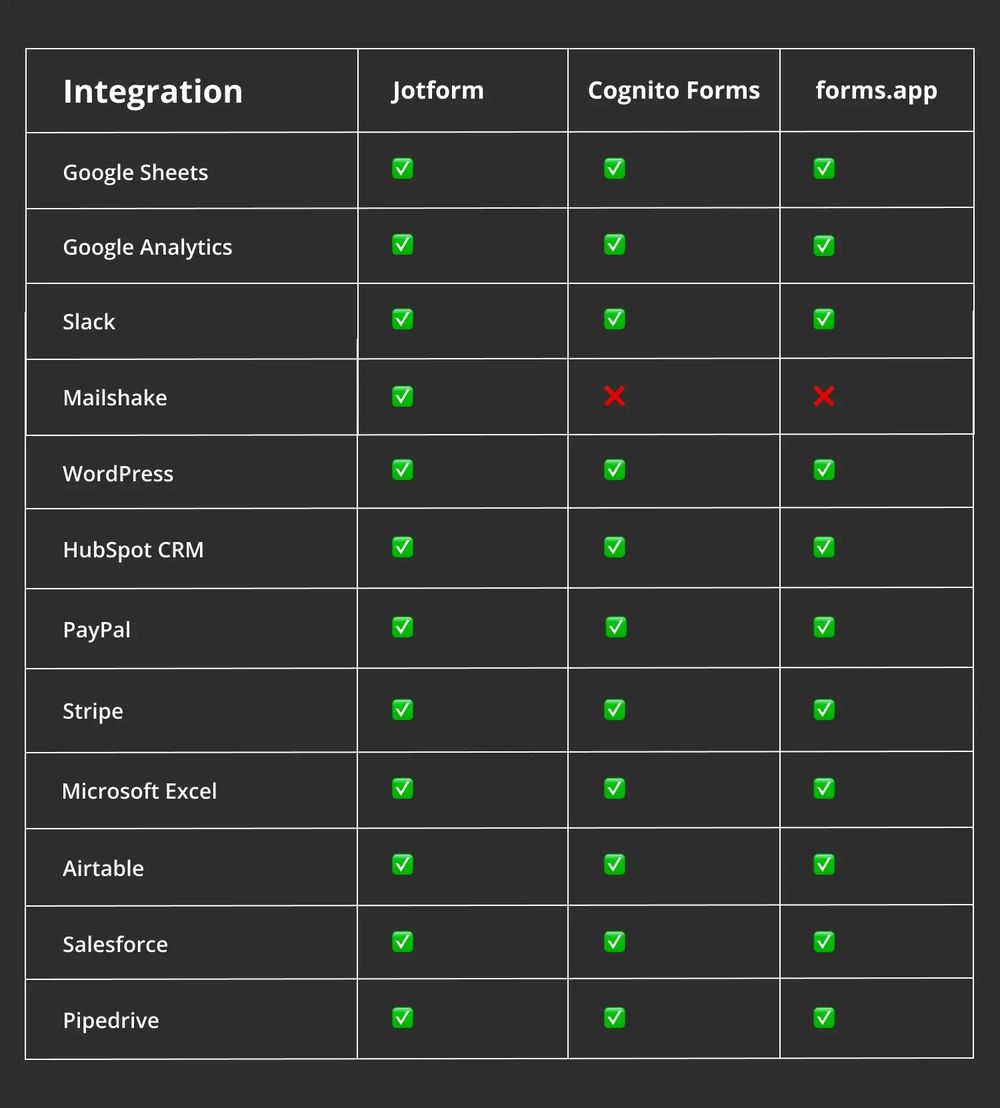
Integrationsmöglichkeiten für Jotform, Cognito Forms und forms.app
6. Teamzusammenarbeit
Jotform-Bewertungen können von verschiedenen Teammitgliedern gleichzeitig vorgenommen werden, um Formulare zu teilen und Einreichungen zu verwalten. Die integrierten Tools sind hilfreich und es verbindet sich mit Apps wie Slack und Google Drive, um Teams besser zusammenarbeiten zu lassen. Im Gegensatz zu forms.app beschränkt Jotform nicht, wie viele Personen basierend auf dem gewählten Bezahlplan an einem Formular arbeiten können.
Auch Cognito Forms ermöglicht es Teammitgliedern, gemeinsam an Formularen zu arbeiten, Formulare einfach zu teilen und Einreichungen zu verwalten. Es verfügt über nützliche integrierte Tools zur Zusammenarbeit und verbindet sich mit Apps wie Slack und Google Drive, um die Teamarbeit zu verbessern. Im Gegensatz zu Jotform hat Cognito Forms jedoch einige Einschränkungen bezüglich der Anzahl der Benutzer, die je nach Bezahlplan an einem Formular arbeiten können.
Bei forms.app beginnt die Teamarbeit mit dem Basic Plan, der es Ihnen ermöglicht, einen zusätzlichen Teammitglied einzuladen. Mit dem Pro Plan können bis zu vier Mitglieder beitreten. Wenn Sie den Premium Plan wählen, können Sie bis zu neun Teammitglieder einladen. Dies hilft allen, besser zusammenzuarbeiten und Formulare unabhängig vom gewählten Plan schnell und einfach zu erstellen und zu verwalten.
7. Vorlagen
Jotform bietet über 10.000 Vorlagen für verschiedene Zwecke wie Umfragen, Anmeldungen und Feedback-Formulare. Diese Vorlagen sind einfach zu verwenden und sehen großartig aus, was sie zu einer angenehmen Arbeit macht. Sie können problemlos Farben ändern, Bilder hinzufügen und Fragen anpassen, um Ihren Wünschen zu entsprechen. Dies hilft Ihnen, schnell und einfach Formulare zu erstellen, um die gewünschten Informationen zu erhalten, ohne Aufwand.
Es gibt mehr als 180 Cognito Forms-Vorlagen, die Sie für verschiedene Dinge wie Umfragen, Bestellformulare, Veranstaltungsregistrierungen und Formulare erstellen können. Diese Vorlagen sind einfach und können an Ihre Bedürfnisse angepasst werden. Sie können Ihre Fragen hinzufügen, die Farben ändern und Bilder einfügen. Dies macht es einfach, Formulare zu erstellen, die gut aussehen und gut funktionieren, damit Sie schnell und einfach Informationen sammeln können.
Eine bessere Alternative zu Jotform und Cognito Forms: forms.app
Nachdem verschiedene Optionen geprüft wurden, ist es leicht zu erkennen, dass jedes Tool gute und schlechte Punkte hat. Einige Tools sind großartig, um Ihre Formulare besonders aussehen zu lassen, können aber etwas knifflig für Formularübermittlungen sein. Andere sind einfacher, haben aber nicht so viele coole Funktionen. Wenn Sie immer noch zwischen Jotform und Cognito Forms wählen, sollten Sie über eine gute Wahl nachdenken: forms.app.
Um weitere Vorteile der Verwendung von forms.app zu sehen, schauen Sie sich die unten stehende Liste an:
- Benutzerfreundlich: Egal, ob Sie ein Profi sind oder gerade erst anfangen, forms.app hat eine benutzerfreundliche Drag-and-Drop-Oberfläche, mit der Sie Formulare mühelos erstellen können, um ein verbessertes Kundenfeedback-System zu erstellen. Sie können schnell loslegen und trotzdem professionelle Ergebnisse erzielen. ✔️ ⏳
- Intelligente KI-Tools: Die Plattform enthält hilfreiche KI-Funktionen wie den KI-Formular-Generator, KI-Umfrage-Tool und KI-Quiz-Maker. Diese Tools verwenden KI, um Ihre Arbeit zu beschleunigen und Ihnen Zeit und Mühe zu sparen. 🤖🦾
- Integrationen: forms.app verbindet sich reibungslos mit beliebten Apps wie Slack, HubSpot, WordPress, Stripe, PayPal und Google Drive. Diese Integrationen helfen Ihrem Team, produktiv zu bleiben und effizient zu arbeiten. 🧩🤝
- Mobile App: Sie und Ihr Team können problemlos Formulare auf Ihren mobilen Geräten erstellen. Es gibt eine dedizierte App im Google Play Store und im Apple Store für die Formularerstellung unterwegs. 📲🤳
- Umfangreiche Vorlagensammlung: Mit über 5.000 vorgefertigten Vorlagen hat forms.app Lösungen für jeden Bedarf. Die Vorlagen sind nach Branche und Zweck organisiert, sodass sie leicht zu finden sind. 📚✨
Welchen Formular-Builder sollten Sie wählen?
Die Wahl zwischen Jotform und Cognito Forms hängt von Ihren spezifischen Bedürfnissen ab. Wenn Sie fortgeschrittene Anpassungsmöglichkeiten und Integrationen benötigen, ist Jotform wahrscheinlich die bessere Option. Cognito Forms ist eine gute Wahl für einfachere und kostengünstigere Formularerstellung.
Bei der Wahl eines Formular-Erstellungstools ist es wichtig, über Ihre spezifischen Anforderungen und Vorlieben nachzudenken. Sowohl Cognito Forms als auch Jotform haben ihre Vorteile, daher ist es wichtig, Ihre Anforderungen zu verstehen, um die beste Entscheidung zu treffen. Wenn Sie jedoch eine Kombination aus beiden möchten, bietet forms.app Flexibilität, Funktionen und Preise, die auf Unternehmen jeder Größe und Branche zugeschnitten sind.
forms.app, dein kostenloser Formulargenerator
- Unbegrenzte Ansichten
- unbegrenzte Anzahl von Fragen
- unbegrenzte Benachrichtigungen
